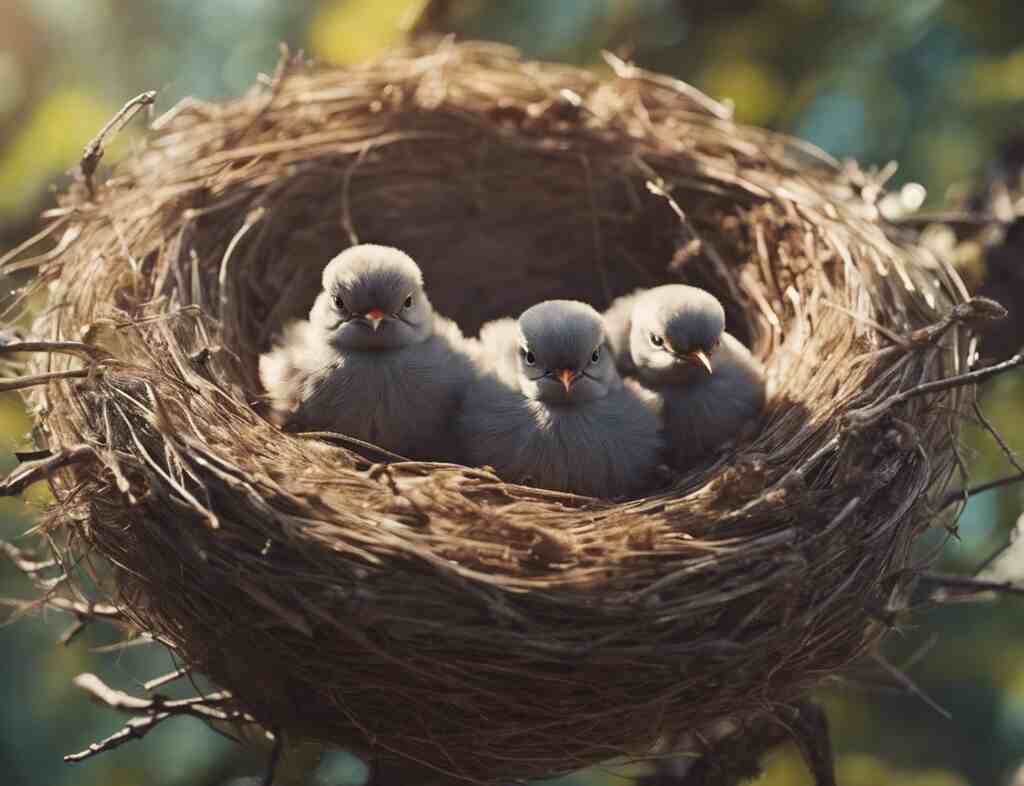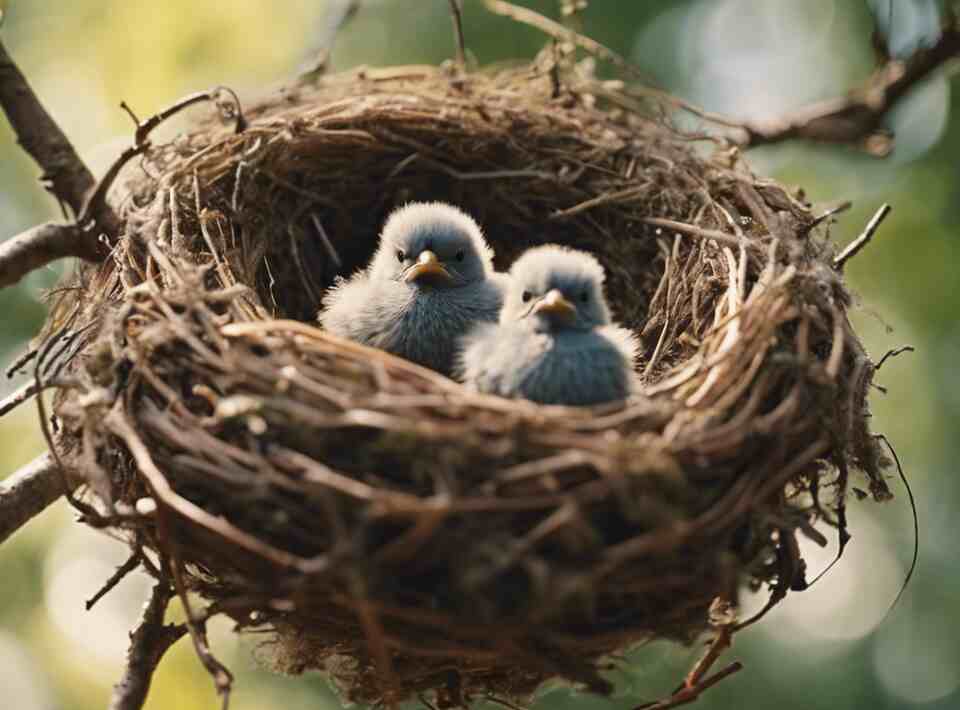Birds are fascinating creatures that exhibit various behaviors to protect their young ones. One common concern among people is whether birds abandon their babies if they are touched by humans. This article delves into this intriguing topic to shed light on the relationship between birds and their offspring.
Table of Contents
Do Birds Abandon Their Babies if Touched?
Understanding Bird Behavior Towards Touched Babies
Birds have a strong instinct to care for their young and ensure their survival. However, the response of birds to human interference with their babies can vary depending on the species. While some bird species may abandon their chicks if they detect unfamiliar scents due to human touch, others may not necessarily do so.
Impact of Human Touch on Bird Offspring
The sense of smell plays a crucial role in how birds recognize their young ones. When humans touch bird babies, they may leave a scent that the parent birds are not familiar with. This unfamiliar scent can trigger a response in some bird species, leading them to perceive their chicks as potentially threatened or compromised.
Species-Specific Responses
Different bird species exhibit varying responses to human touch on their offspring. For instance, birds like the albatross have been known to abandon their chicks if they come into contact with humans. On the other hand, species such as pigeons and doves are known to have a higher tolerance for human interaction and may not necessarily abandon their babies if touched.
Ways to Minimize Human Impact on Bird Offspring
If you come across bird babies in the wild and feel compelled to help them, it is essential to proceed with caution to minimize any negative impact on the birds. Here are a few tips to follow:
- Avoid touching the birds unless absolutely necessary.
- If intervention is needed, use gloves to minimize the transfer of human scent.
- Keep human interaction with bird babies to a minimum to reduce the likelihood of abandonment by the parent birds.
The Importance of Respecting Wildlife Boundaries
As humans, it is crucial to respect the natural boundaries of wildlife and refrain from unnecessary interference with bird offspring. While our intentions may be good, the well-being of the birds should always come first. By observing birds from a distance and allowing them to care for their young undisturbed, we can help ensure the continued survival of these magnificent creatures.
The response of birds to human touch on their babies can vary depending on the species and individual circumstances. While some birds may abandon their offspring if they detect unfamiliar scents due to human contact, others may not exhibit such behavior. It is essential for humans to be mindful of their actions around bird offspring and prioritize the well-being of the birds above all else. By respecting wildlife boundaries and minimizing interference, we can coexist harmoniously with our feathered friends in the natural world.
The Impact of Human Interaction on Bird Parenting Behaviors
The relationship between humans and wildlife, specifically birds, has long been a topic of interest and concern. One common question that arises is whether birds abandon their babies if they are touched by humans. Understanding the impact of human interaction on bird parenting behaviors is crucial to ensure the well-being of these fascinating creatures.
Human Interaction and Bird Parenting
Bird parents, like many other species in the animal kingdom, have a strong instinct to protect and care for their young. When humans come into contact with bird nests or chicks, it can trigger various responses from the parents. In some cases, the presence of humans near the nest may cause stress to the adult birds, leading them to exhibit defensive behaviors.
Stress Response in Birds
Birds perceive human presence as a potential threat to their offspring. When humans touch bird babies or disturb their nests, it can disrupt the natural parenting process. The stress induced by human interaction may result in the abandonment of the nest or chicks as a survival strategy. The fear of predators may also influence this behavior, as birds may perceive human scent as a danger to their young.
Nest Abandonment
The act of abandoning their nest or chicks is not taken lightly by bird parents. It is often a last resort when they feel that the safety of their offspring is compromised. The scent left behind by humans can signal danger to birds, prompting them to flee the nest in an attempt to protect their young from potential harm.
Impact of Abandonment
When bird parents abandon their babies due to human interference, it can have serious consequences for the chicks’ survival. Young birds rely entirely on their parents for warmth, protection, and food. Without proper care, the chances of survival diminish significantly. This disruption in parenting behaviors can also impact the emotional well-being of the adult birds.
Conservation Efforts
To mitigate the negative impact of human interaction on bird parenting behaviors, conservationists and wildlife enthusiasts advocate for responsible behavior around bird nests and habitats. Educating the public about the importance of respecting wildlife boundaries and observing birds from a distance can help reduce stress on bird parents and increase the chances of successful breeding.
The question of whether birds abandon their babies if touched by humans underscores the delicate balance between human activity and wildlife conservation. By recognizing and respecting the boundaries of bird habitats, we can coexist harmoniously with these avian species. Ultimately, protecting the natural behaviors of bird parents is essential for the survival and well-being of future generations of these magnificent creatures.
Conclusion
In exploring the question of whether birds abandon their babies if touched, it is evident that the impact of human interaction on bird parenting behaviors is a complex and delicate issue. While some birds may indeed exhibit abandonment behavior if they detect human scent on their chicks, it is crucial to recognize that not all bird species react in the same way. Each species has evolved unique strategies for protecting and caring for their young, influenced by their environment and evolutionary history.
Human activities, such as handling bird nests or chicks, can disrupt the natural parenting behaviors of birds, leading to potential negative consequences for both the chicks and the adult birds. It is essential for us as humans to be mindful of our interactions with birds and to respect their natural instincts and behaviors. By minimizing our impact on bird habitats and observing birds from a safe distance, we can help ensure the well-being and survival of bird populations.
Understanding the intricacies of bird parenting behaviors not only enhances our appreciation for these fascinating creatures but also underscores the importance of conservation efforts to protect their habitats. By raising awareness about the potential consequences of human interference on bird parenting, we can inspire others to take action to preserve the natural world and all its inhabitants. As stewards of the environment, we have a responsibility to coexist harmoniously with wildlife and to advocate for policies that safeguard the delicate balance of ecosystems.
While birds may exhibit varying responses to human interaction, it is crucial to approach these magnificent creatures with care and respect. By educating ourselves about bird behaviors and taking steps to minimize our impact on their lives, we can contribute to the preservation of avian species for future generations to appreciate and enjoy. Let us strive to be mindful stewards of the natural world and work together to create a more sustainable and harmonious environment for all living beings.



